Fine Motor Skills Normal Building Vocabulary Worksheets for Ages 5-7
6 filtered results
-
From - To
Our Fine Motor Skills Normal Building Vocabulary Worksheets for ages 5-7 are expertly designed to combine essential vocabulary development with fine motor practice. Each engaging activity promotes hand-eye coordination, dexterity, and control, laying a foundational skill set for budding readers and writers. These interactive worksheets are perfect for children just starting their educational journey, helping them to enhance their vocabulary while strengthening crucial fine motor abilities. Ideal for both classroom and at-home learning, our worksheets are a valuable resource for any early educator aiming to support the holistic development of young learners. Explore now for free and watch your child thrive!


Fish Worksheet
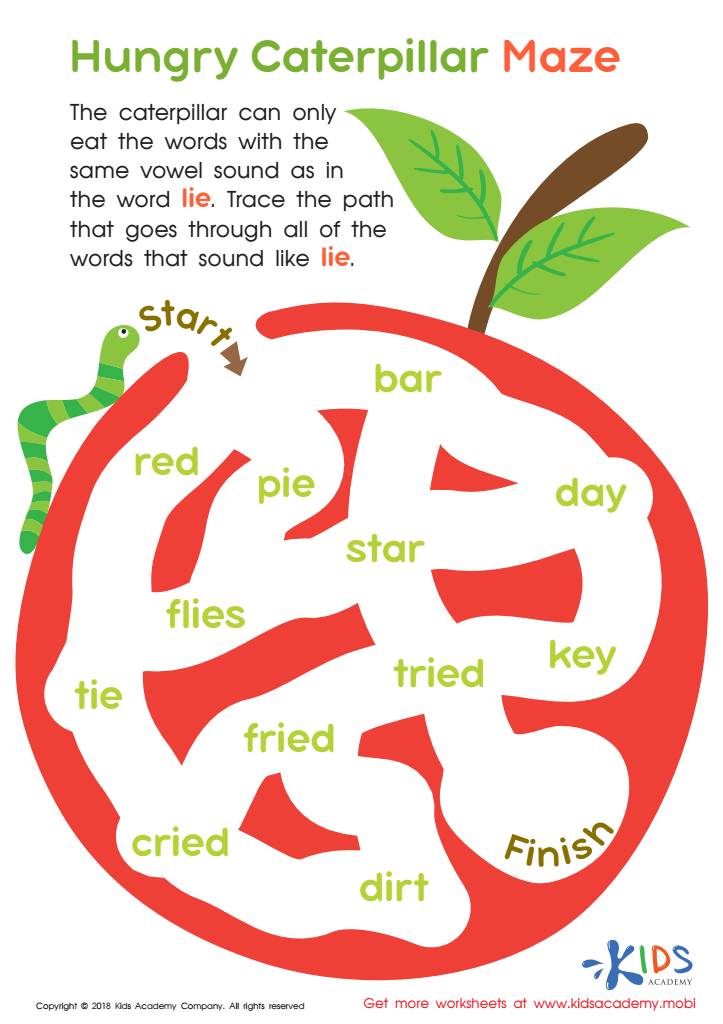

Hungry Caterpillar Maze Worksheet
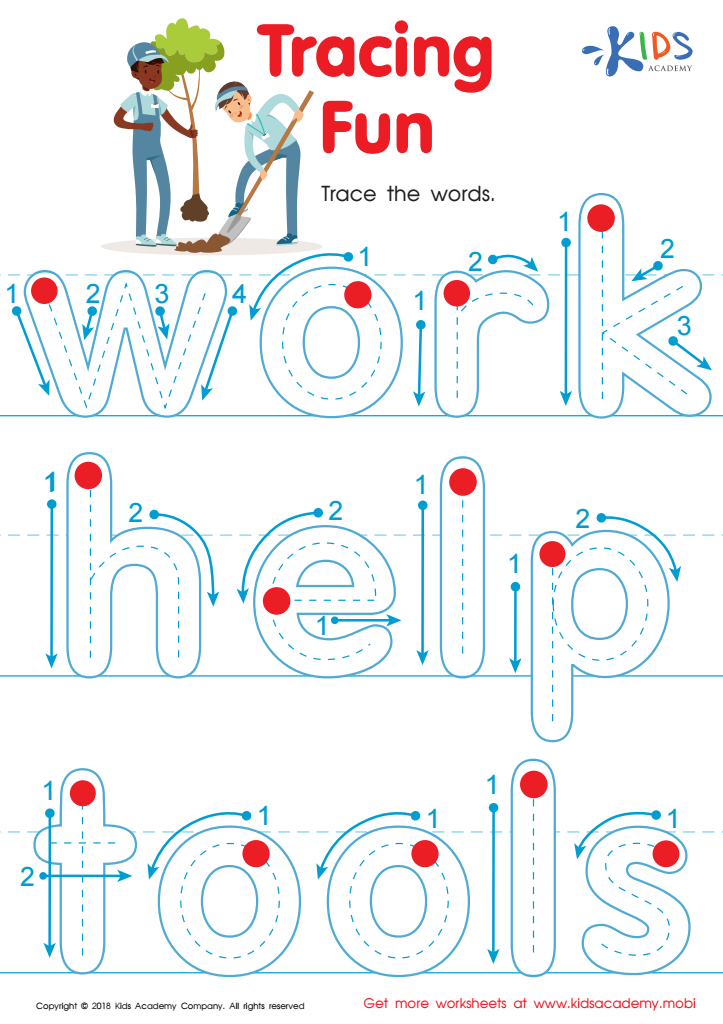

Tracing Fun Worksheet
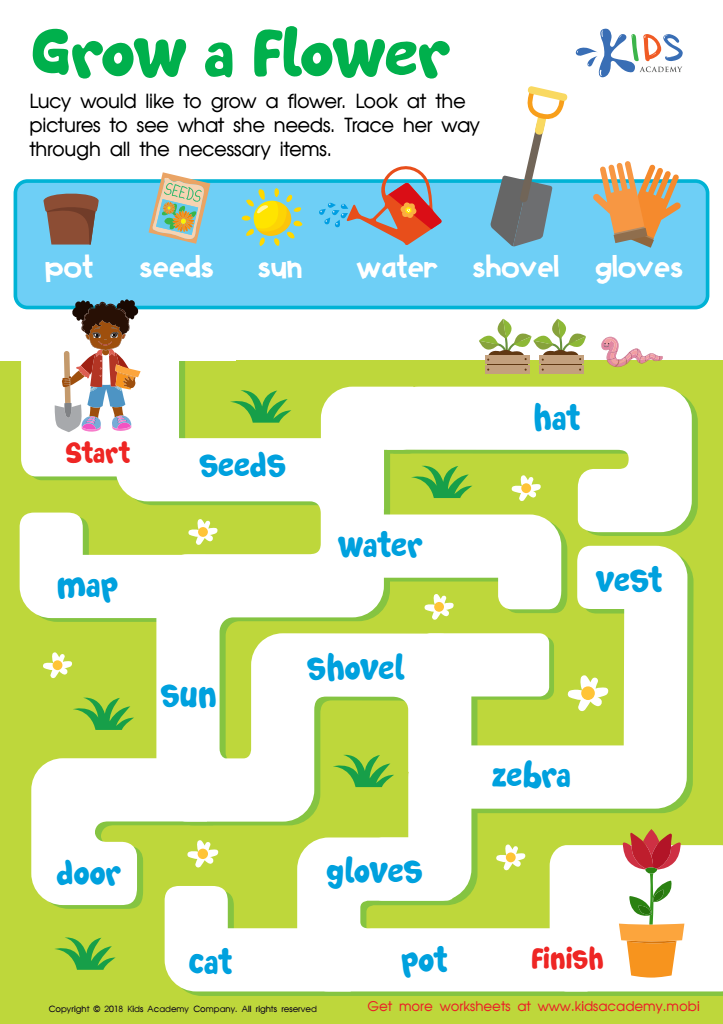

Grow a Flower Worksheet
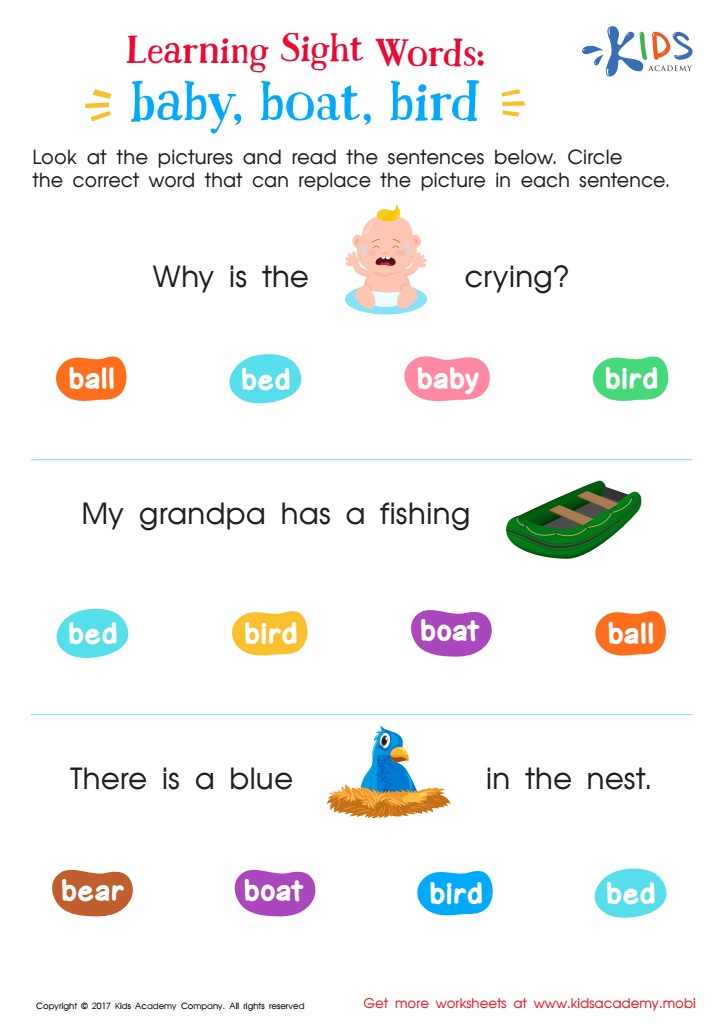

Baby, Boat, Bird Worksheet Sight Words Worksheet
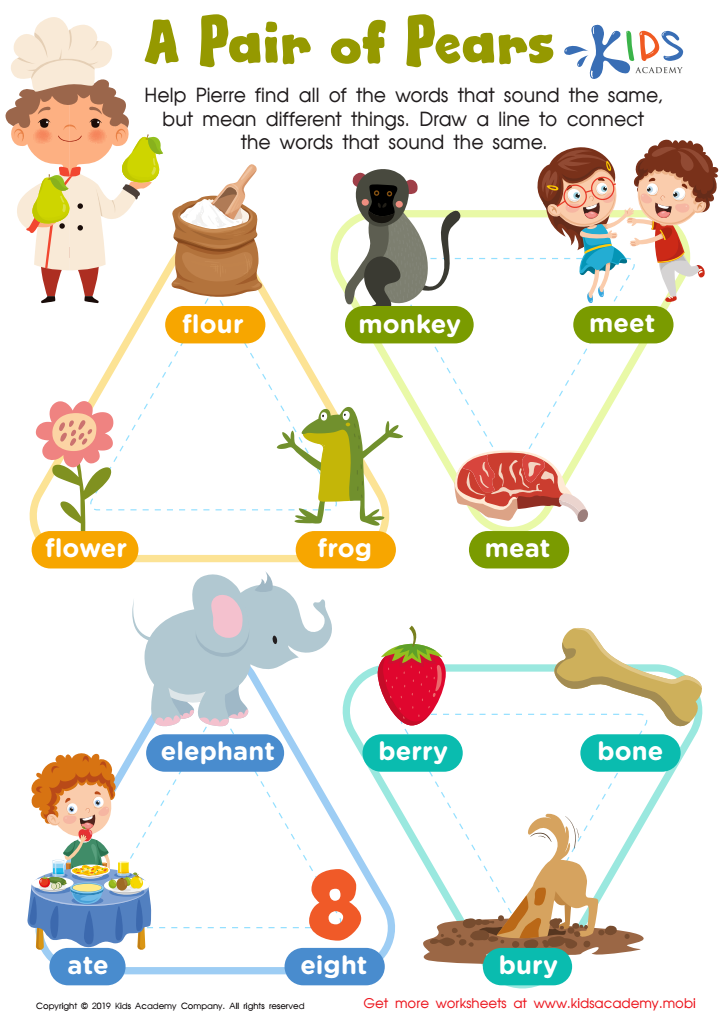

Pair Pears Worksheet
Fine motor skills and vocabulary development are crucial for children aged 5-7, forming the cornerstone of their early education and overall development. Fine motor skills, which involve the coordination of small muscle movements in the hands and fingers, are essential for conducting everyday tasks such as writing, buttoning clothes, and using utensils. Being able to proficiently use these skills boosts a child's independence and self-confidence. Early proficiency can also significantly impact academic success; for example, strong fine motor skills aid in writing legibly and efficiently, a fundamental aspect of early literacy.
Simultaneously, a rich vocabulary forms the basis of effective communication. Children with a robust vocabulary can better understand instructions, express their thoughts and feelings, and engage more fully in academic and social activities. Vocabulary development during these formative years correlates strongly with later literacy skills and reading comprehension. Children who acquire language skills early are better equipped to understand complex ideas and to question and explore the world around them.
Both fine motor skills and vocabulary are foundations for lifelong learning and success. By nurturing these areas, parents and teachers help pave the way for a child's academic achievements, social-emotional development, and overall self-confidence. Investing time and effort in these skills ensures children build essential capacities to thrive in school and life.
 Assign to My Students
Assign to My Students



.jpg)












